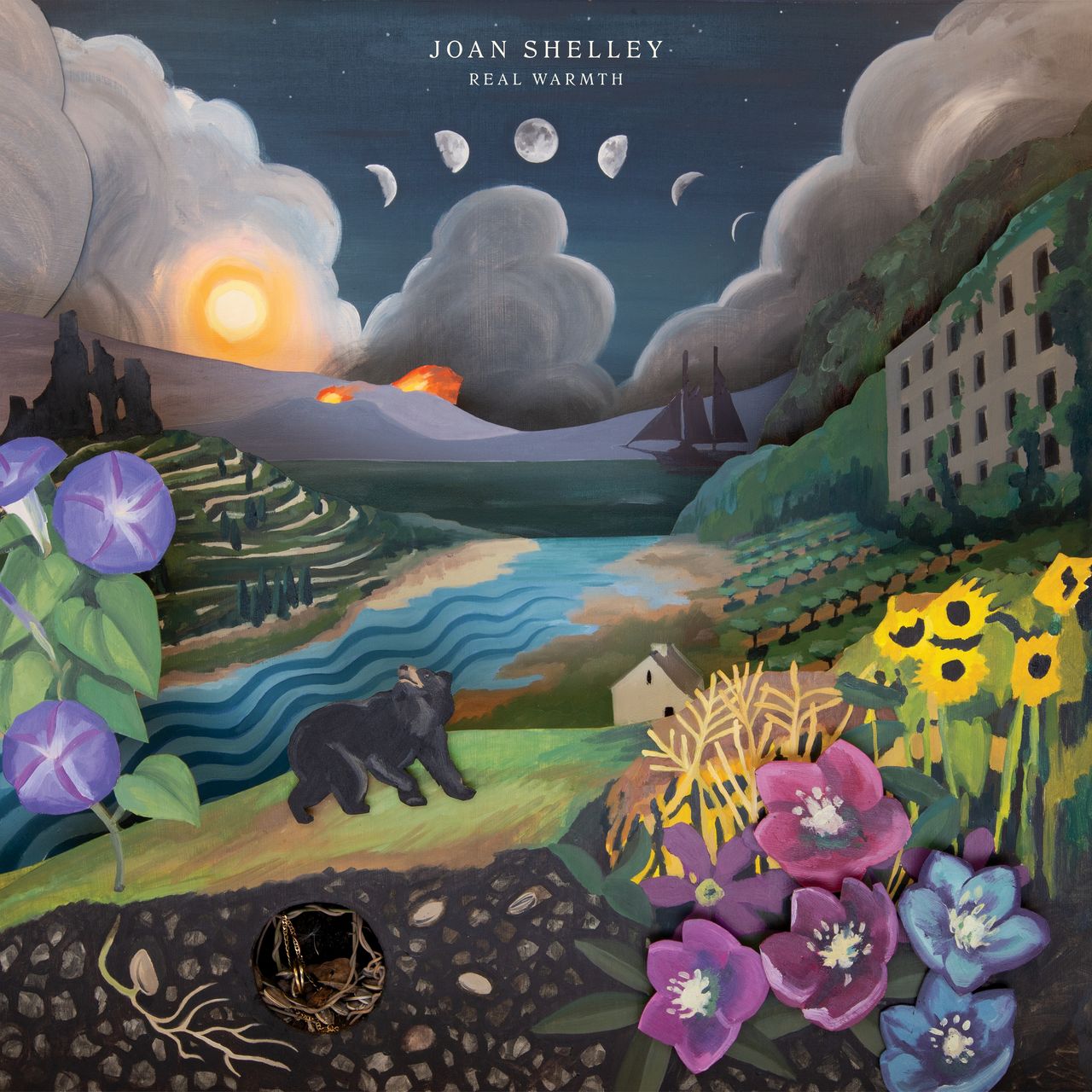Home is not just a point on a map. In the music of Joan Shelley, it’s often embodied by the people who make up a place. For a long time, Shelley’s musical (and literal) home was Louisville, where she was born and raised, where she absorbed so much of the folk music that still inspires her, where she caught her first glimpse of musical community, and where she has collaborated regularly with local players and artists. In the years between 2022’s The Spur and last year’s Mood Ring, however, the woman who once daydreamed about spending humanity’s final moments in her beloved Kentucky, “holding my dear friends and drinking wine,” relocated much further north, to small-town Michigan, with her partner Nathan Salsburg and their daughter.
Throughout her career, Shelley has brought that conception of home wherever she’s gone, whether to End of an Ear Studio in Louisville, where she recorded songs for Mood Ring, or to Wilco’s Loft in Chicago, where she made 2017’s Joan Shelley with two generations of Tweedys. Most recently, she brought it to Toronto, where she fell in with a crew of local musicians to record her sixth album, Real Warmth. Working closely with Ben Whiteley, who plays bass for the Weather Station and Jake Xerxes Fussell and who produced the new record, Shelley and this community of artists devise musical palettes that help bring out new rhythmic elements in her music.
Her collaborators make their presence known immediately. On opener “Here in the High and Low,” they lend a fresh counterpoint to her lilting melodies, the electric guitars and spry percussion churning up an assertive energy. It’s an invocation, meant to welcome and rouse you. There have always been jazzier undercurrents running through Shelley’s music, but here they come to the forefront, especially when Karen Ng’s saxophone flutters around the edges of “On the Gold and Silver.” Real Warmth indulges more instrumental passages, like the coda of “Field Guide to Wild Life,” although sometimes her fellow musicians crowd out the deft picking that has always been a hallmark of her albums.
Generally, these Canadians help chase down Shelley’s idea of home as something to protect, as a place full of people whose pain she would readily bear for them. “God, if I could guard you, take your fire, then burn me now,” she sings on “Everybody”; she might be addressing her partner or their daughter, or her band, or anyone listening to the song. Whiteley and their crew—which includes Weather Station singer Tamara Lindeman, Doug Paisley, Salsburg, and Shelley’s daughter—make her songs sound a little less solitary. In turn, she invites the listener into the music: “Join in the song, join in the band,” she sings on “Here in the High and Low.”
